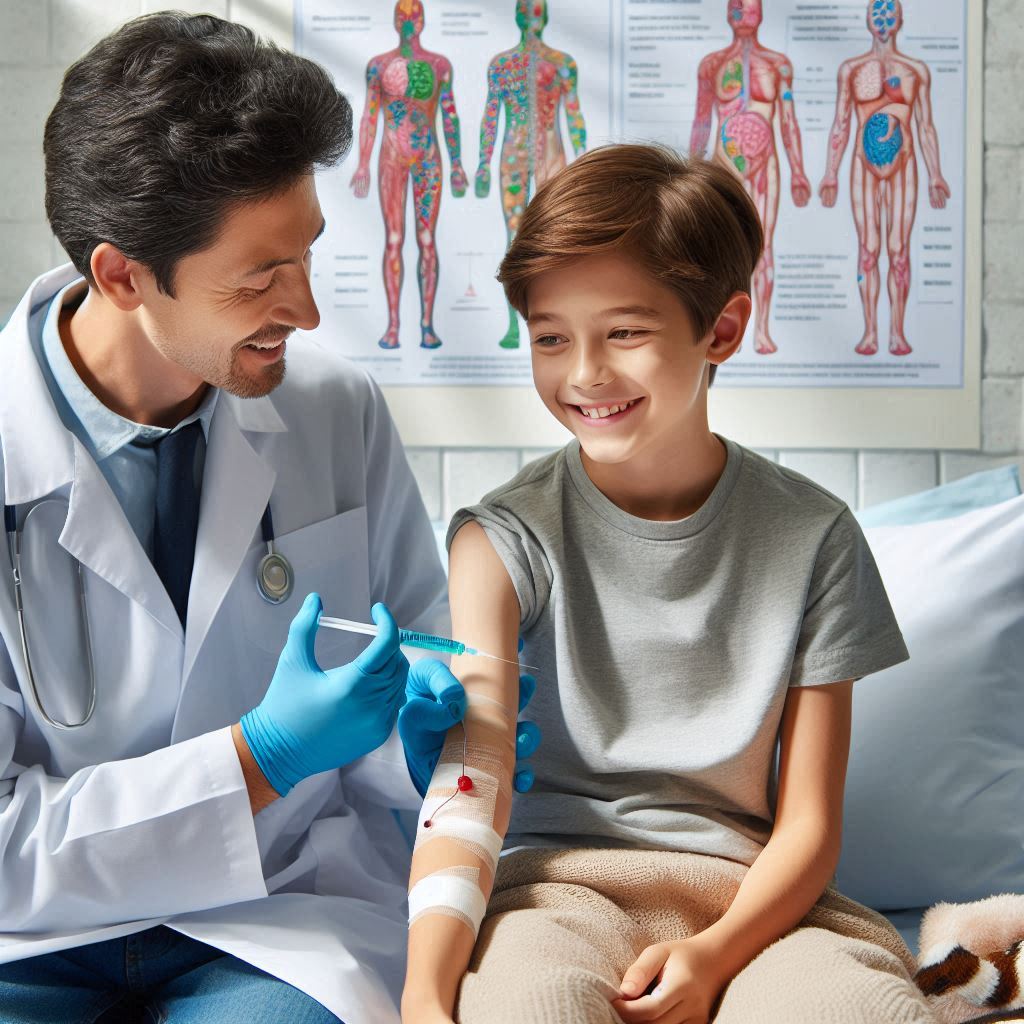The “ultra-rare” progressive neurological illness known as spastic paraplegia type 50 (SPG50) results in gradual paralysis of all four limbs, speech difficulties, developmental delays, and seizures. By the time it reaches maturity, it is usually fatal. This is a hereditary disease that affects about 80 children worldwide.
Less than three years after his original diagnosis, the kid received the first single-patient gene therapy from a clinical study team at SickKids in an attempt to stem the condition’s development.
The detailed report of the clinical trial was published in the journal Nature Medicine.
Delivering a healthy copy of a gene to a person whose gene(s) are malfunctioning is known as gene therapy. SPG50 in Michael’s condition is brought on by two pathogenic variations in the AP4M1 gene.
Under the direction of Dr. Jim Dowling, Senior Scientist in the Genetics & Genome Biology programme at SickKids and Staff Physician in the Division of Neurology, the clinical research team injected Michael’s spinal fluid with the healthy AP4M1 gene, directly delivering the gene to the nerve cells.
While these ultra-rare diseases are unique, our workflow provides a road map for gene therapies that could help many of the thousands of children in Canada with rare genetic conditions.
Dr. Jim Dowling
The kid had no significant adverse effects in the year following therapy, and unlike the typical progression of neurodegenerative disorders such as SPG50, his condition does not appear to be getting worse.
He also started to exhibit promising indicators of progress. Michael managed to put his heels on the ground for the first time. Additionally, there were advances in several areas of his neurodevelopment.
When we heard that Michael had been diagnosed with this terrible disease, our world fell apart. We were lost and broken as a family,
Thankfully, we had an amazing team at SickKids and a supportive community that lifted us up and gave us the confidence to raise millions of dollars and create a therapy, not only for the kid, but for other children affected by this disease for generations to come.
Kid’s Parents
While Kid’s advancement is still being monitored by the clinical research team, the experiment offers significant preliminary proof of the safety and effectiveness of gene therapy in slowing or stopping the advancement of SPG50.
Crucially, the findings also demonstrate how gene therapy may be swiftly and uniquely created for each patient with a unique set of uncommon genetic disorders. In the future, they plan to apply this strategy to additional ailments to support SickKids’ Precision Child Health initiative, which aims to provide each patient with personalised care.
There are over 10,000 individual rare diseases and most are without therapy. We are providing a blueprint that, with adequate funding and support, has the potential to change the lives of patients with rare diseases and create a future where every child can benefit from precision medicine.
Dr. Jim Dowling
Source: Sick Kids News
Journal Reference: Dowling, James J., et al. “AAV Gene Therapy for Hereditary Spastic Paraplegia Type 50: A Phase 1 Trial in a Single Patient.” Nature Medicine, 2024, pp. 1-6, https://doi.org/10.1038/s41591-024-03078-4.
Last Modified:






